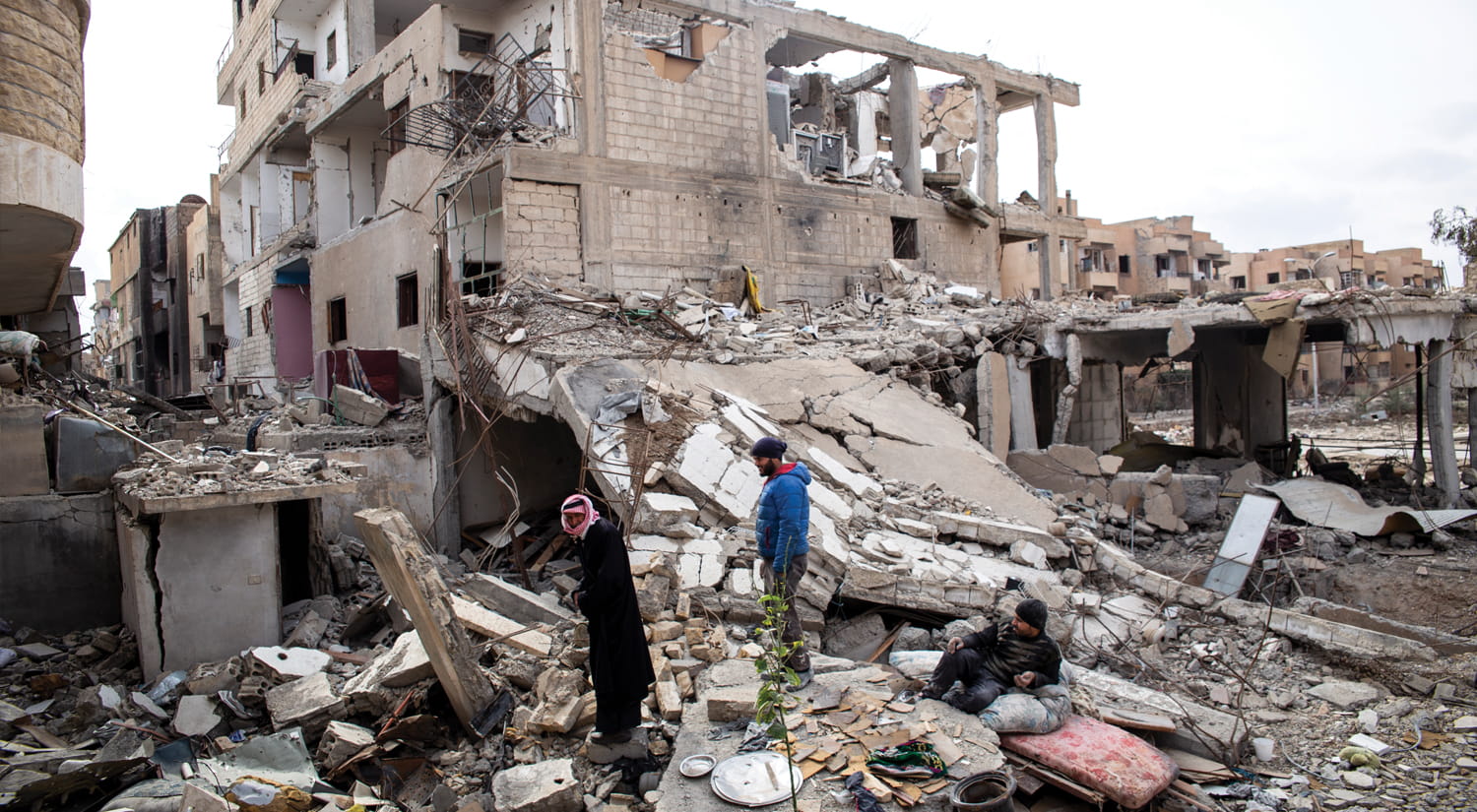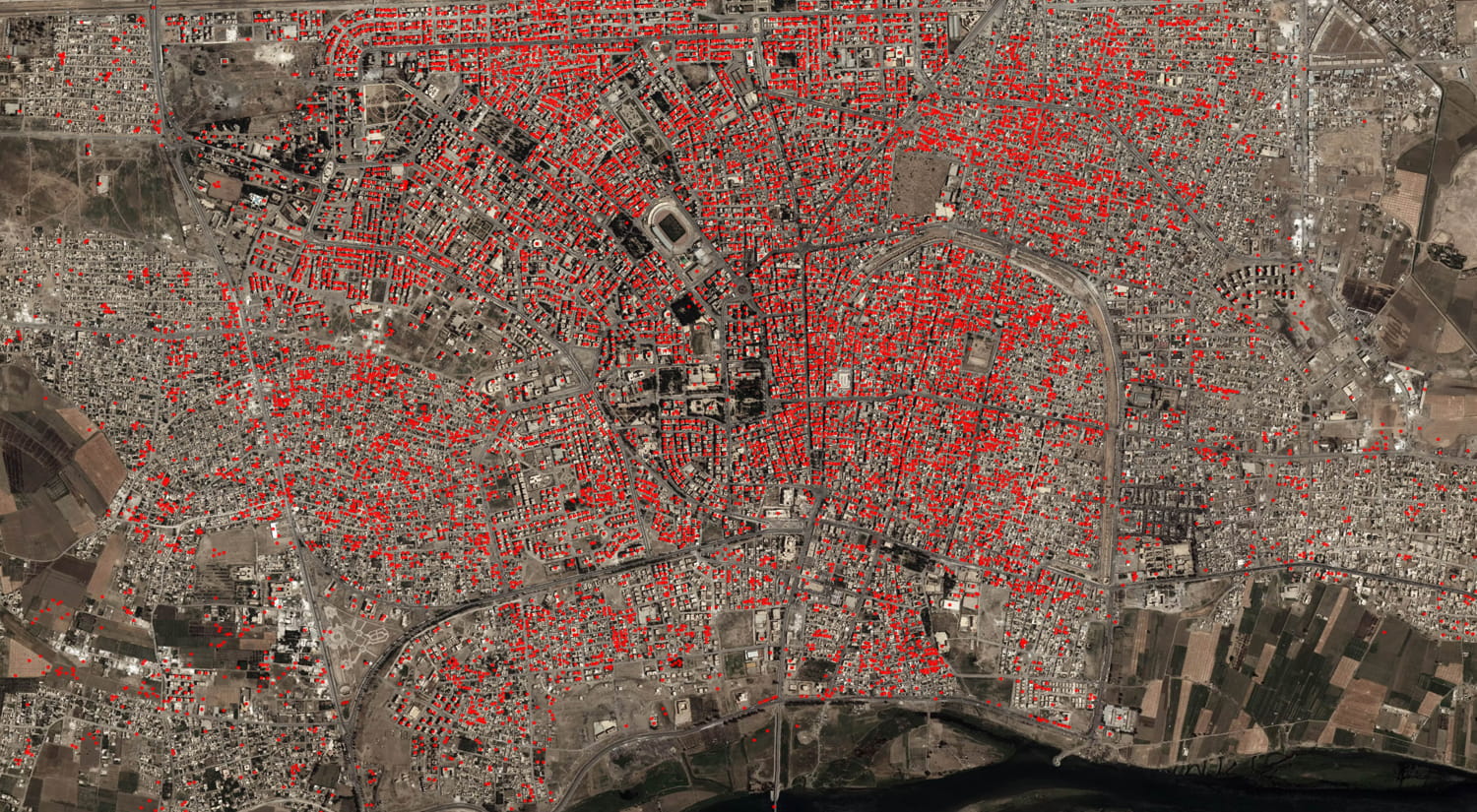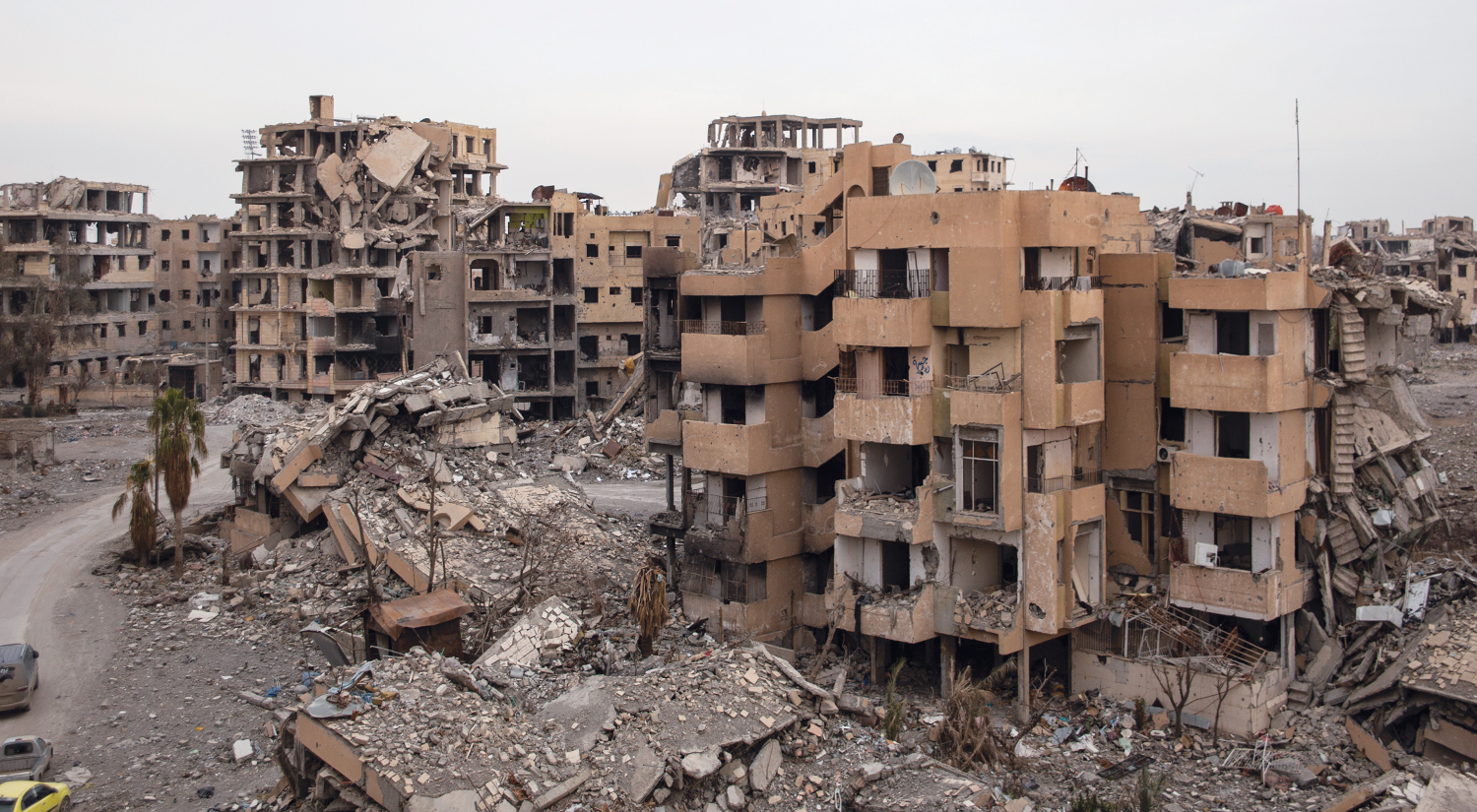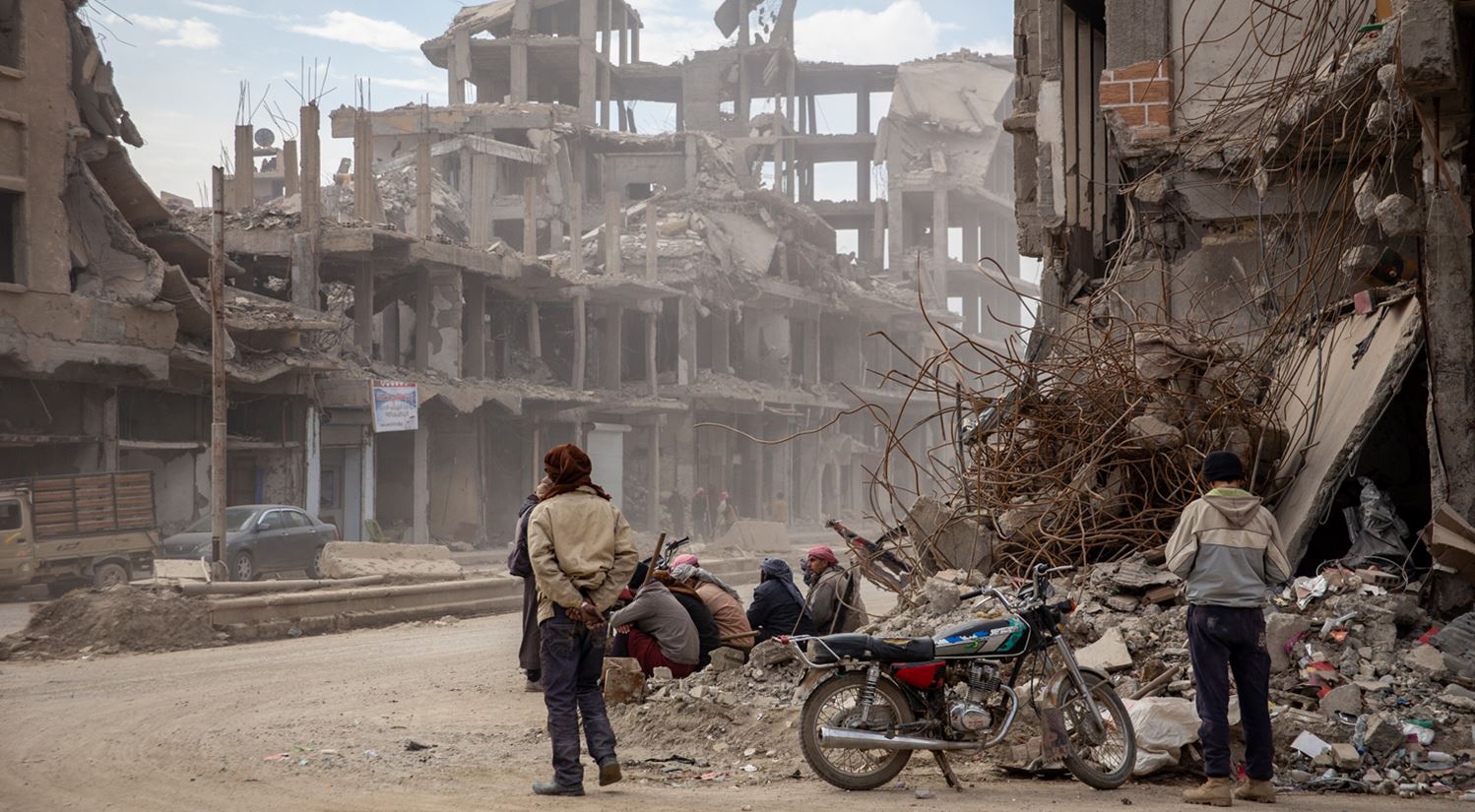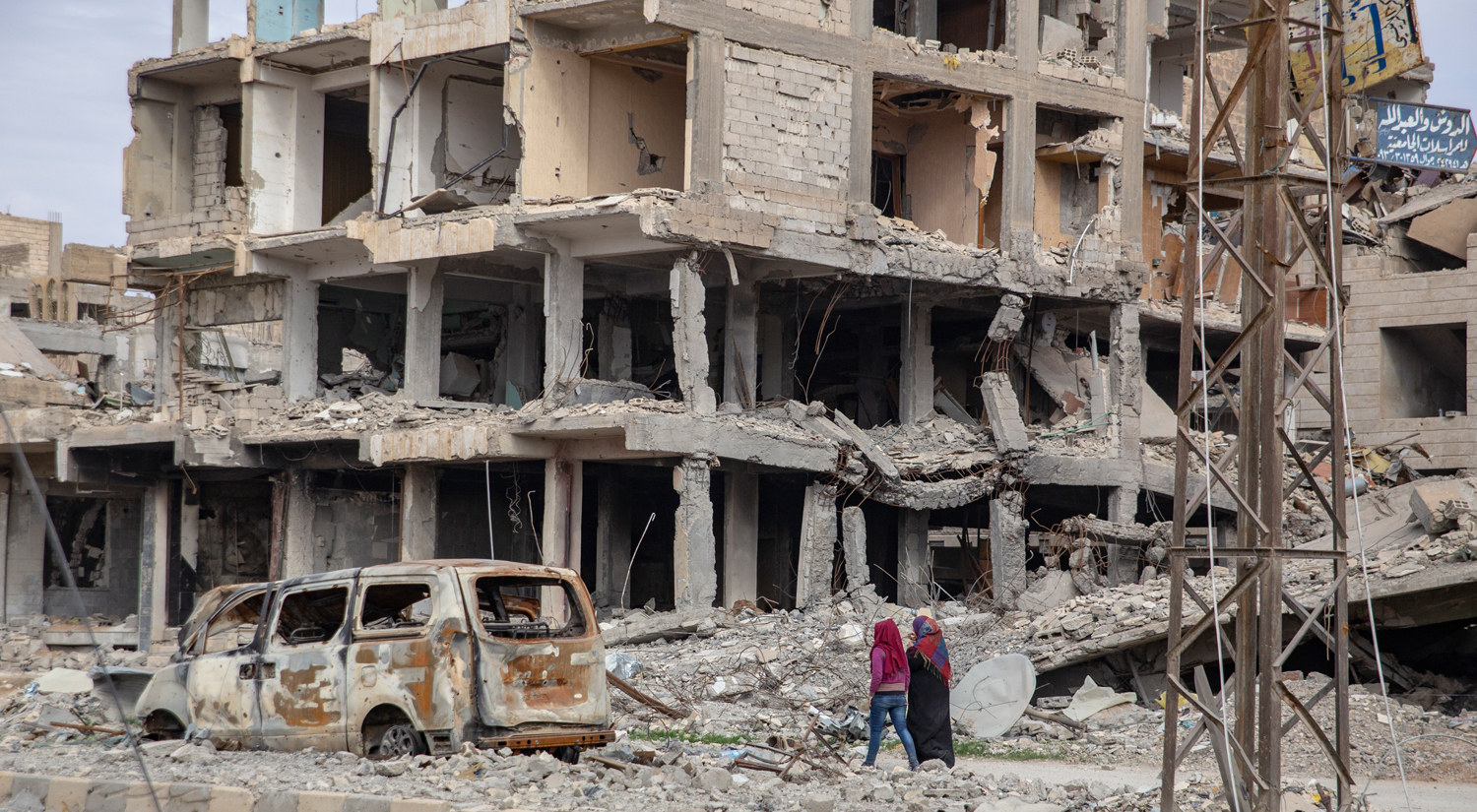Digital Verification Unit students contribute to ground-breaking report by Amnesty International
-
Date
Fri 24 May 19
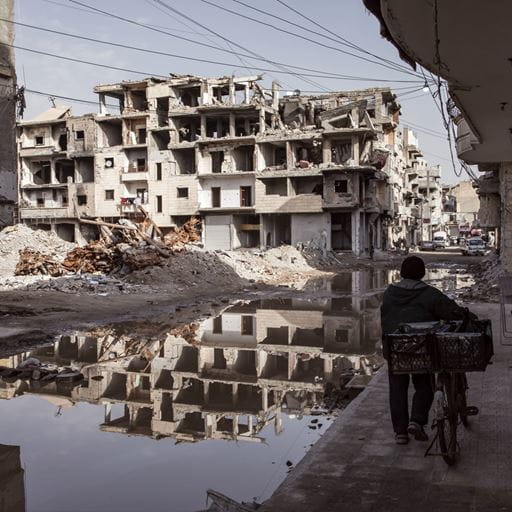
Essex students have used social media content to help challenge official accounts of the bombing of the Syrian city of Raqqa.
The students, members of the Digital Verification Unit (DVU) at the Human Rights Centre, joined similar teams from five global universities to provide research for a ground-breaking, immersive report, published by Amnesty International.
War in Raqqa: Rhetoric Versus Reality alleges that, between June and October 2017, bombing by the US-led Coalition resulted in over 1,600 civilian casualties, over ten times the Coalition’s own figure.
The students applied geo-location and verification techniques to photo and video content shared from the city to build a detailed picture of where bombs and artillery shells fell.
Essex DVU member Arlen Millner said: “Open-source investigations like this are often slow and full of dead ends, with hours spent working together to identify features such as roads or mosques, and connecting them with geographic coordinates. Our research, combined with the analysis of satellite imagery carried out by volunteers as part of Amnesty Decoders helped identify some of the strike locations. To see the final report published is very rewarding – it’s a huge achievement for all concerned.”
Findings from the six university DVUs were checked by Amnesty staff on the ground, confirming a pattern which suggests, the report authors argue, indiscriminate bombing of residential neighbourhoods.
It suggests over 11,000 buildings were destroyed across the four-month campaign.
The Essex students were part of Amnesty’s Digital Verification Corps, joining students from University of California Berkeley, University of Cambridge, University of Pretoria, University of Toronto and University of Hong Kong.
The Essex DVU comprised 10 students, all from the Human Rights Centre, who worked on the research for over four months.
Essex DVU member Esme Marshall said: “This project is a clear demonstration of the value of digital verification as an innovative investigative technique. When combined with crowdsourced data and the vital work carried out by on-the-ground researchers, it allows us to build a comprehensive picture of the reality of a military campaign such as this.”
Raqqa was captured by the Syrian Opposition in 2013, then by so-called “Islamic State” (IS), who proclaimed it their capital in 2014.
Between June and October 2017, the Coalition - which included the US, UK, France and others - launched thousands of air and artillery strikes in support of the Syrian Democratic Forces (SDF), a militia fighting IS on the ground.
IS snipers are alleged to have shot at civilians to dissuade them from trying to escape the Coalition bombardment. Despite this, an estimated 270,000 civilians fled the city during the fighting.
On October 17 2017, the SDF declared that they had liberated the city from IS.
In addition to the interactive report, Amnesty also staged an exhibition in London.
Essex DVU member Matteo Bassetti said: “Seeing the exhibition was incredible. We worked on the imagery for months but almost never saw the people in the videos. Bringing together very different types of work in this way communicates a lot of emotions to the viewers. It's a powerful way of displaying to the rest of the world the violations in Raqqa and demanding accountability for them."
The report and exhibition are the culmination of an in-depth investigation by Amnesty International in collaboration with Airwars, a collaborative, not-for-profit transparency project which tracks the impact of international military actions in conflict zones such as Iraq, Syria and Libya.
The London exhibition runs until 30 May. It is hoped the exhibition will then be re-staged in a number of other cities across the UK and internationally.
All images courtesy of Amnesty International.
Original reporting by Arlen Millner, Mitchell E Paquette, Matteo Bassetti and Esme Marshall.
